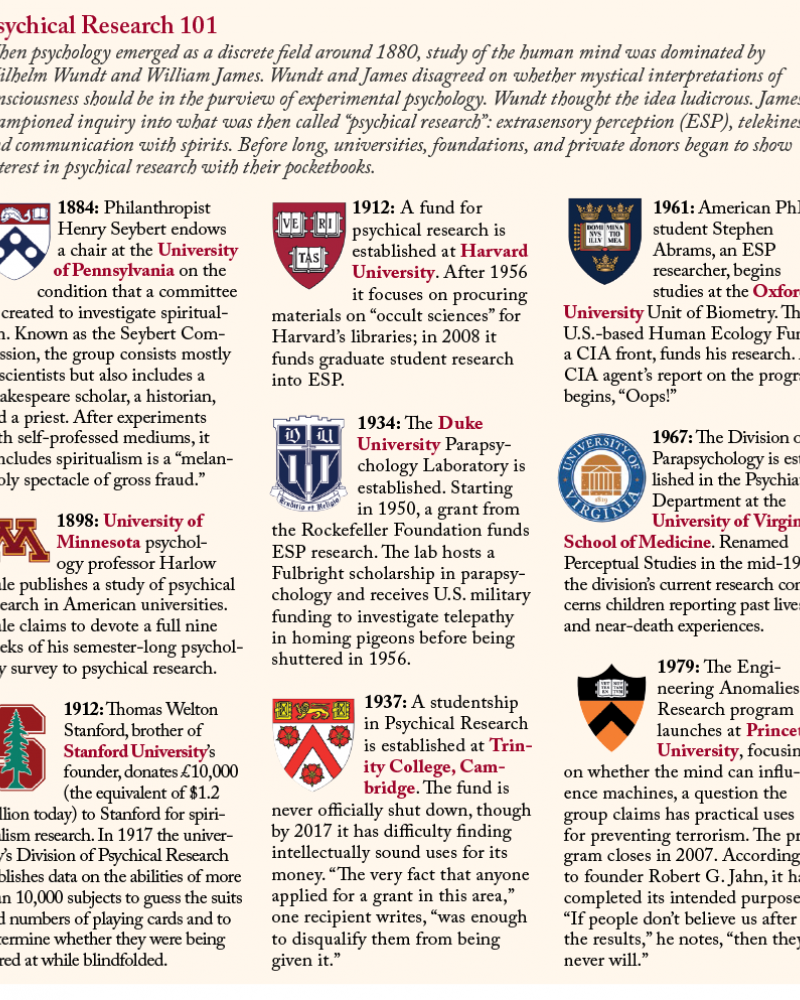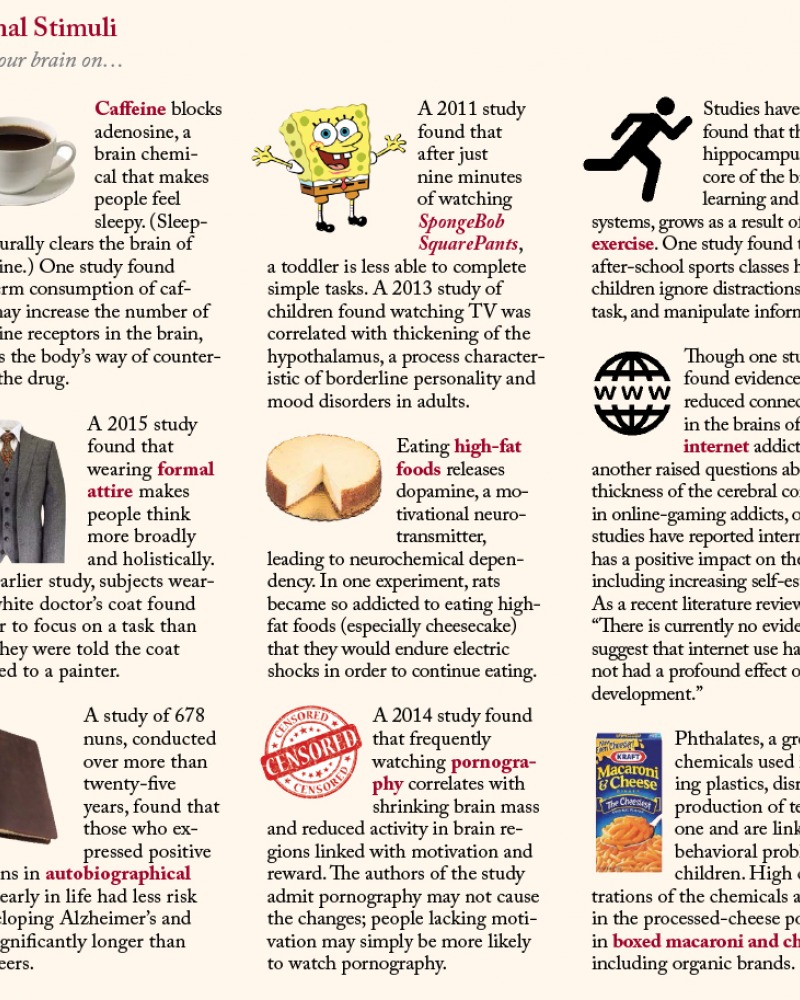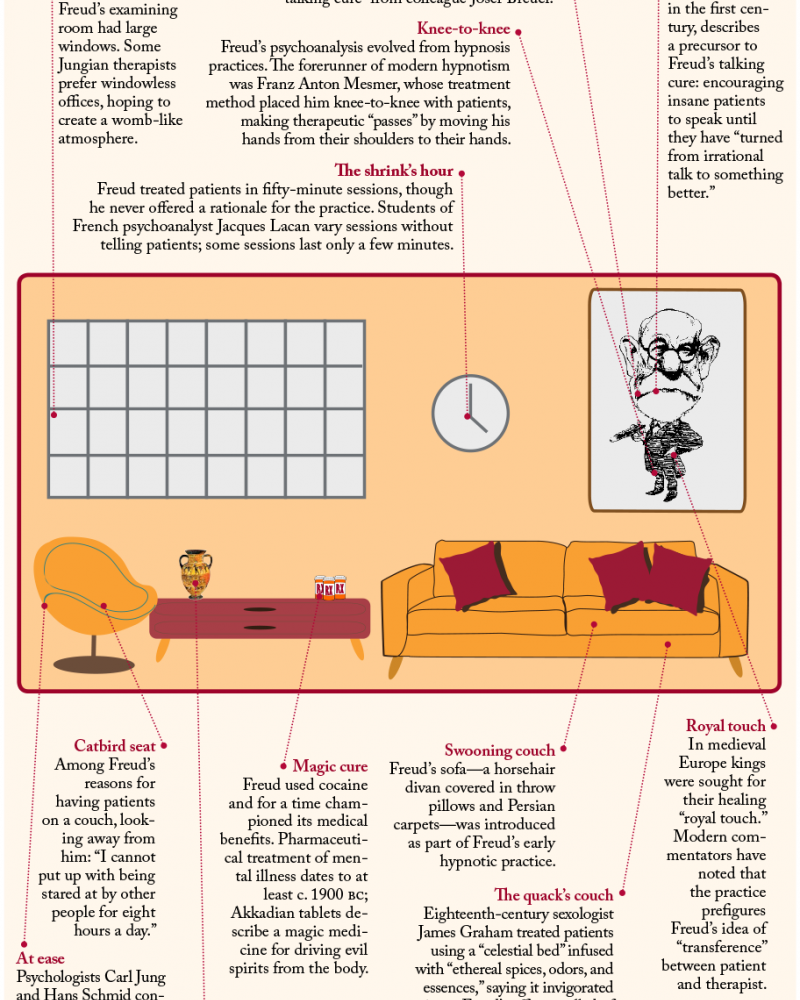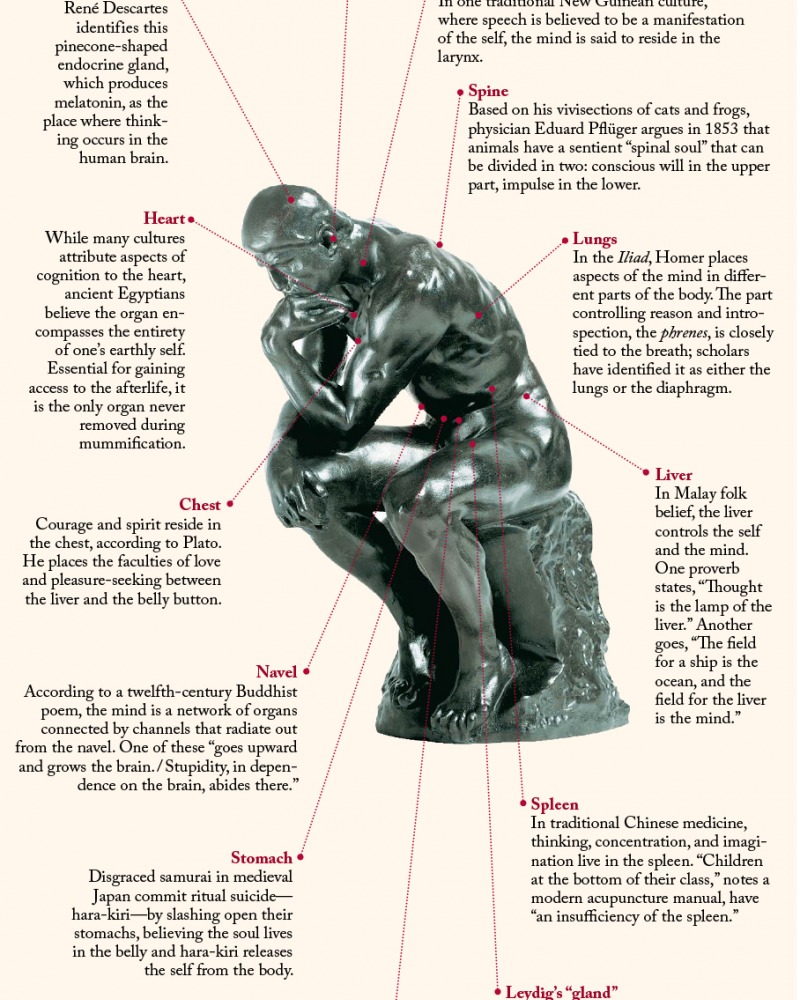Issue Coming Soon
Miscellany
An ongoing international study of people who have survived severe cardiac arrest has led researchers to believe that the brain experiences a “hyper-alerted state” after clinical death. This means, they theorize, that consciousness could continue after the body stops showing signs of life; a person may be able to hear and perceive the pronouncement of their own death.
Miscellany
George Romero, who pioneered the modern zombie film in 1968, complained in 2010 that he’d “never had a zombie eat a brain, but it’s become this landmark thing.” The trope was introduced in 1985 by Dan O’Bannon’s Return of the Living Dead, in which a zombie woman explains that eating brains relieves the “pain of being dead.” Some fans have speculated this is due to the brain’s high levels of serotonin.
Miscellany
The ancient physician Galen catalogued the anxious delusions of his melancholic patients, including those of a man who “believes he has been turned into a kind of snail” and “runs away from everyone he meets lest his shell get crushed,” and those of another who “is afraid that Atlas, who supports the world, will become tired and throw it away, and he and all of us will be crushed and pushed together.”
Miscellany
In 1903, Mark Twain comforted Helen Keller, who had been accused of plagiarizing her story “The Frost King,” telling her in a letter, “All ideas are secondhand, consciously and unconsciously drawn from a million outside sources.” He took a harder line on his own intellectual property, however, campaigning so vigorously for stringent copyright laws that the American Bar Association later recognized him for his efforts.
Pages






